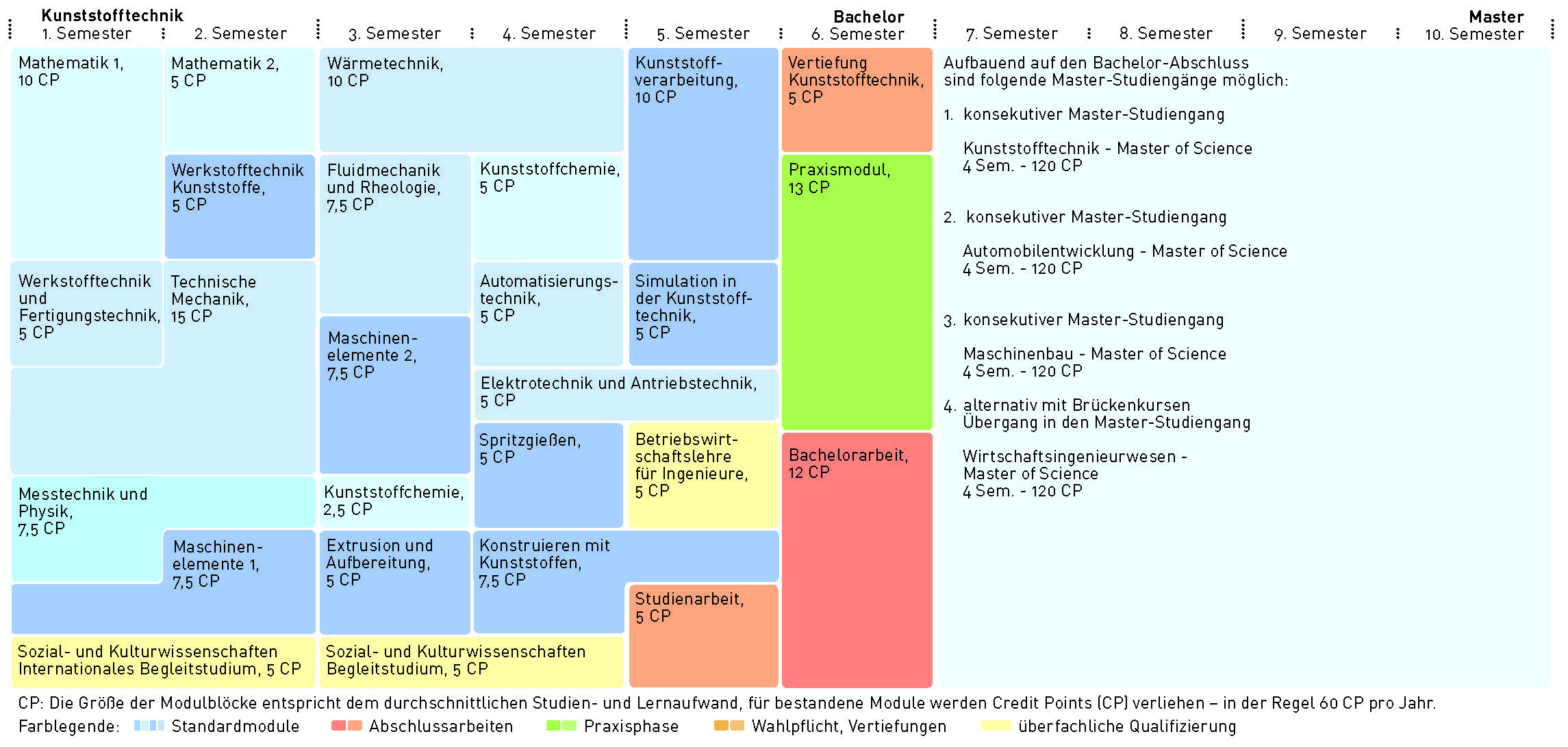
Plastics Engineering (Bachelor's degree)
| Semester | 6 Semester |
| Darmstadt | |
| Winter semester/summer semester | |
| DE | |
| Without admission restriction. | |
| yes |
Content
Plastics are everywhere: in mobile phones, in furniture, in cars or tennis rackets. But how are plastics processed; how are products made from them designed, constructed and manufactured; and how must machines be built that produce plastic products? The answers to these questions are provided by the plastics technology study programme leading to a Bachelor of Engineering (B.Eng.) degree. In six semesters, it provides comprehensive basic knowledge of the subject. The education is oriented towards mechanical and process engineering. It differs in this way from study programmes with a focus on chemistry and chemical engineering. More detailed information on the study programme can be found on the website the Faculty of Mechanical and Plastics Engineering.
Perspective
Bridge courses required!Bridge courses required! Plastics engineers work, for example, in the areas of product development and design, production or sales.
Fields of work (selection):
- Plastics processing
- Automotive engineering, mechanical engineering
- Furniture or raw material production
- Aerospace technology
- Electrical or sports equipment industry
Based on the Bachelor's degree, the following Master's programmes are possible:
Plastics Engineering - Master of Science
Mechanical Engineering - Master of Science (Bridge courses required!)
Automotive Engineering - Master of Science (Bridge courses required!)
Industrial Engineering - Master of Science (Bridge courses required!)
Structure
Qualifications and competences for these fields of activity are conveyed by the modules of the bachelor's programme in plastics engineering. These study units can include courses, project work or laboratory phases. The Bachelor's degree qualifies the student for a profession, but but also enables the transition to Master's degree programmes (see graphic). A detailed description of the course contents can be found in the module manual (German).
Dual study model
Plastics Engineering (B.Eng.) can also be studied dual (German). In the dual form, students alternate between courses at the university and closely interlinked practical phases in cooperating companies. You can find more information at h-da.de/dual (German).
Access
The degree programme Plastics Enginbeering (B.Eng.) is not admission restricted (no NC). Proof of a basic internship is required. Completion before the start of the degree programme is not mandatory, but recommended. Detailed information is available at www.fbmk.h-da.de. Among other things, these school-leaving qualifications are considered to be the admission requirement:
- General matriculation standard (allgemeine Hochschulreife)
- Subject-related entrance qualification (fachgebundene Hochschulreife)
- Advanced entrance qualification for universities of applied sciences (Fachhochschulreife).
A detailed description of the admission requirements can be found in the Special Provisions of the Examination Regulations (German).
